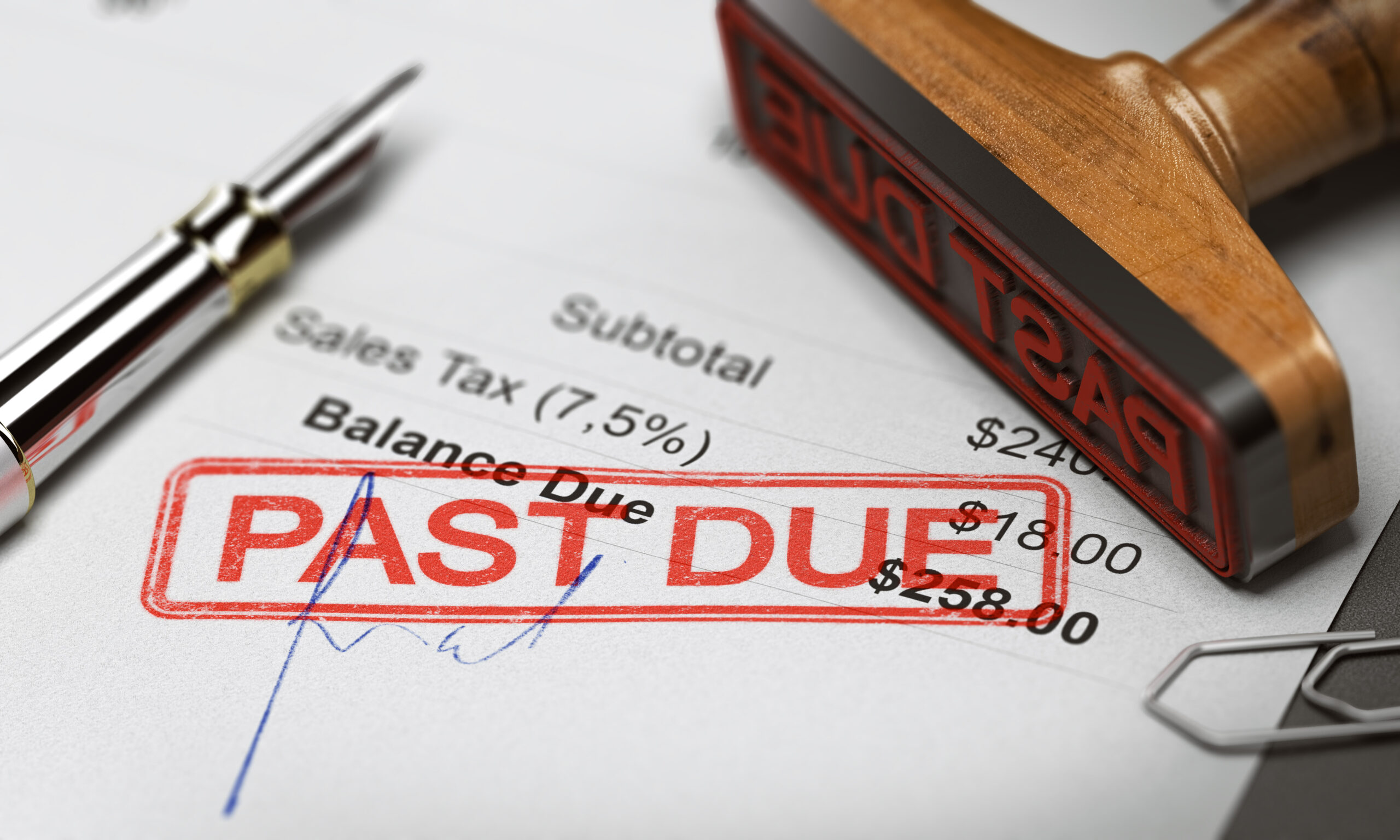What can debt collectors do if you don’t pay creditors in Australia?
The actions debt collectors can take if you don’t pay a debt depends upon the severity of the debt, and the extent that the payment is delayed. Generally speaking, a debt collector will get in contact with a debtor on behalf of a creditor to begin the process of debt recovery. This may look like creating a payment plan, escalation to court, a default listing on your credit report, or your wages being garnished.
What are debt collectors?
Debt collectors can be an individual or agency that can collect debts on behalf of individuals, businesses, or service providers. Debt collection is legal in Australia, as those that are owed money (creditors) are entitled to reclaim these unpaid funds. Some debt resolution agencies may include Credit Corp Recoveries and EC Credit Control.
Debt collectors have a fearsome reputation, however, there are strict regulations around how they can engage with debtors. According to the ACCC, under Australian law a debt collector must not:
- Use physical force
- Use coercion
- Unduly harass or hassle the debtor
- Mislead or deceive the debtor
- Take unfair advantage of any vulnerability, disability or similar affecting a debtor. This can amount to unconscionable conduct.
If you are attempting to begin the process of international debt collection, it may be worth speaking to an agency that specialises in overseas debt recovery.
Why might you end up dealing with a debt collector?
An outstanding debt may be escalated to a collection agency when it is 90-120 days past due.
If you are a few days late on your phone bill, a debt collector is not likely going to come knocking on your door. Debt collection is typically reserved for payments that are significantly outstanding.
Before the services of a debt collector are engaged, it is likely the individual, business, or provider you owe money to has already tried to make contact with you several times. If you do not respond to any of their reminders, letters or phone calls, or you do not make payments after agreeing to a payment plan, Australian debt recoveries can be actioned through a debt collection agency.
The debt collection process
In Australia, the process of debt recovery in Australia may look like:
- Contact – Debt collector contacts you via phone, email, letter, in person, or social media. You could receive a letter of demand in this process.
- Payment plan – the debt collector will discuss your payment options and negotiate payment plans, if needed.
- Court action – If payment is still not made, this issue can be escalated to the courts. A Statement of Claim may be served to the debtor, advising they have 28 days to pay the amount claimed. If this does not occur, the debt collector may arrange a court judgement against you. At this time, the debtor may file a defence.
- Default listing – If you have received a court judgement (and if the debt is worth over $150 and over 60-days outstanding), it may be listed as a default. A default will remain on your credit report for five years.
- Garnish wages – If you do not pay the judgement debt, your employer may be served a garnishee order for your wages or salary. Your employer must take an amount from your wages or salary to pay the creditor, until the judgement debt is paid off, or the court stops the order.
- Assets seized – Depending on the extent of your debt, and any assets you used as collateral to secure the line of credit, a bank or creditor may seize your asset(s) to reclaim the lost payments. This commonly occurs when a borrower defaults on a home loan or car loan, with the property or vehicle seized in response.
As mentioned, there are strict Australian debt collection laws and guidelines set out by the ACCC that dictate what a debt collector can and cannot do when chasing unpaid debts from Australians. But this goes both ways. As the ACCC guidelines state, when debtors are legally responsible for repaying an outstanding amount, they should:
- Not attempt to avoid the obligation to satisfy debts they have incurred;
- Promptly contact creditors and debt collectors when they are experiencing financial difficulties and attempt to negotiate a variation in payments or other arrangement; and
- Be candid about their financial position, including any other debts.

How long can a debt be chased in Australia?
If you have an older debt, you may be wondering how long before a debt is written off in Australia or, simply, when do debt collectors give up? There is a statute of limitations in Australia for how long creditors can legally pursue debt. In most states, the limitation period for debts is six years. However, in the Northern Territory, the limitation period is three years.
The specific time frame that creditors and debt collectors can pursue debt you owe begins from either:
- When the debt was due
- The date you last made payment
- The date you acknowledged the debt in writing.
If you’re living overseas but have a debt in Australia, for example, you may also be wondering what happens if a debt collector cannot find you. It’s worth remembering that they have six years to legally pursue (three in the NT). This may involve contacting your employer overseas, or family members in some instances. In the meantime, your debt may accrue more interest, and your credit history and credit score will be adversely affected in Australia.
What are the short- and long-term impacts of not paying debt collectors?
The short-term impact of not paying a debt collector is that you may face additional requirements, such as agreeing to a payment plan, dealing with the courts, having a default listed on your credit report. Additionally, the longer you delay payment, the more interest (if applicable) and fees you may accrue on top of your outstanding debt.
The long-term impacts of not paying a debt collector, or the individual, business, or provider you owe money to, can be even more severe.
Damage to your credit history and credit score
If default is listed on your credit history this will remain for five years, and can damage your credit score. This can prevent you from being able to access credit products such as home loans, credit cards or personal loans, for as long as the default is on your credit file. It can also impact your ability to rent properties when credit checks are involved, or open a new phone plan.
Bankruptcy
If the debt is substantial, a debt collector may commence the application to either wind up your company, or declare you personally bankrupt through a sequestration order. Bankruptcy can provide some relief, as it may release you from most debts, however the consequences are significant.
You may either choose or be appointed a trustee to administer your bankrupt estate. This trustee must be provided with details of your debts, income and assets. The trustee will notify your creditors that you are bankrupt, and may commence selling your assets to help pay off your debts. Additionally, you will need to request permission from the trustee in writing to travel overseas, or face criminal charges.
Now you may be wondering, can you go to jail for debt. The good news is that no, you cannot, but a creditor and debt collector may take you to court to try and reclaim the missing funds and declare you bankrupt.
What to do if you believe you should not have to pay the debt
According to the Financial Rights legal centre, if you believe that you do not owe the debt and should not have to pay it, you may want to consider the following:
- Seek immediate legal advice
- Collect any relevant documentation to support your argument
- Advise the debt collector that you have a dispute and want it investigated
- If the debt collector is in External Dispute Resolution (EDR), lodge a dispute.
- If the debt collector is not in EDR, speak to your legal counsel about filing a defence to court proceedings.
Reduce your business’s exposure to debt
If you’re constantly juggling outstanding debts to your business, or have late paying clients, it may be high time you protect your business by taking a proactive approach to your debtor management.
At CreditorWatch, we offer businesses the most comprehensive and data-driven tools to help them secure their cash flow, reveal credit risk, and mitigate late payments. Our debtor management software, DebtorLogic, is an interactive trade program that analyses your aged-trial balance to uncover warning signs of credit risk. You’ll be able to utilise this information to make high-level decisions around prioritising collections, ultimately reducing Days Sales Outstanding (DSO).
Speak to our team of experts at CreditorWatch today to discover more about how you can protect your business from bad debts and avoid the involvement of debt collectors.

Get started with CreditorWatch today
Take your credit management to the next level with a 14-day free trial.

